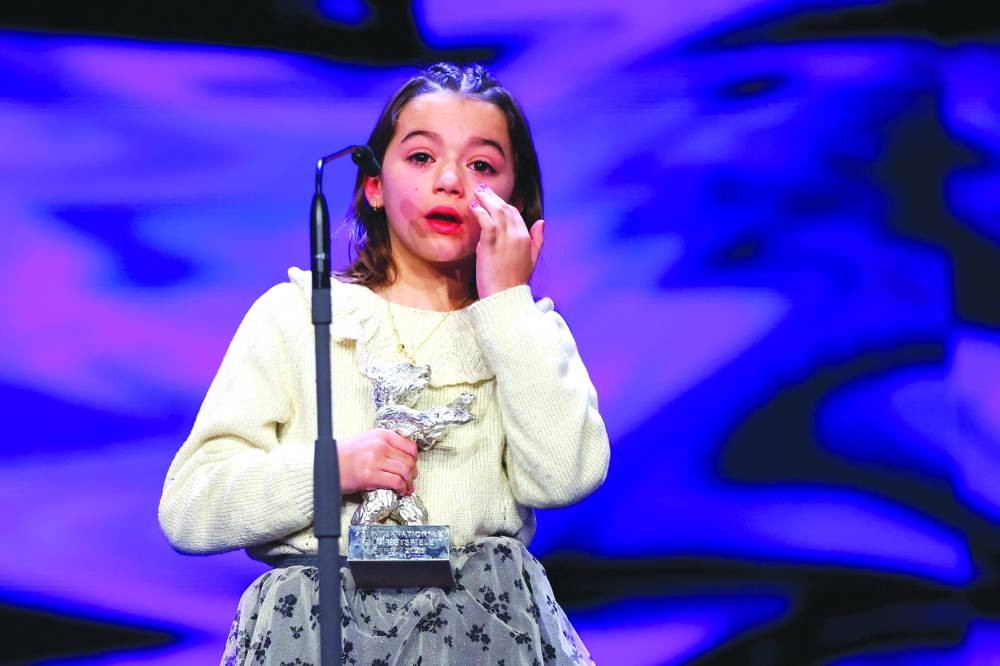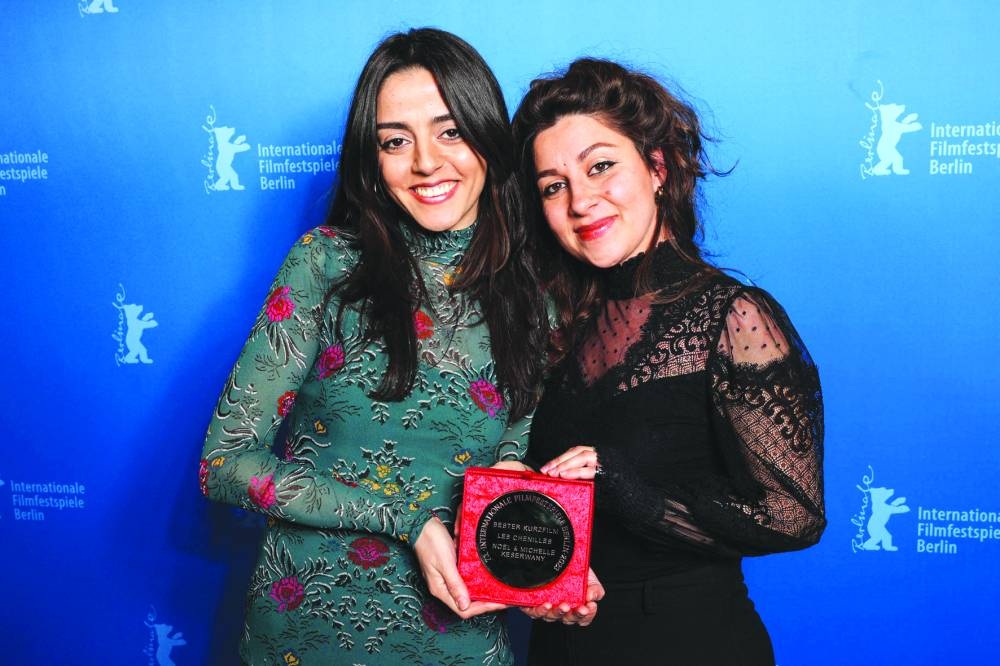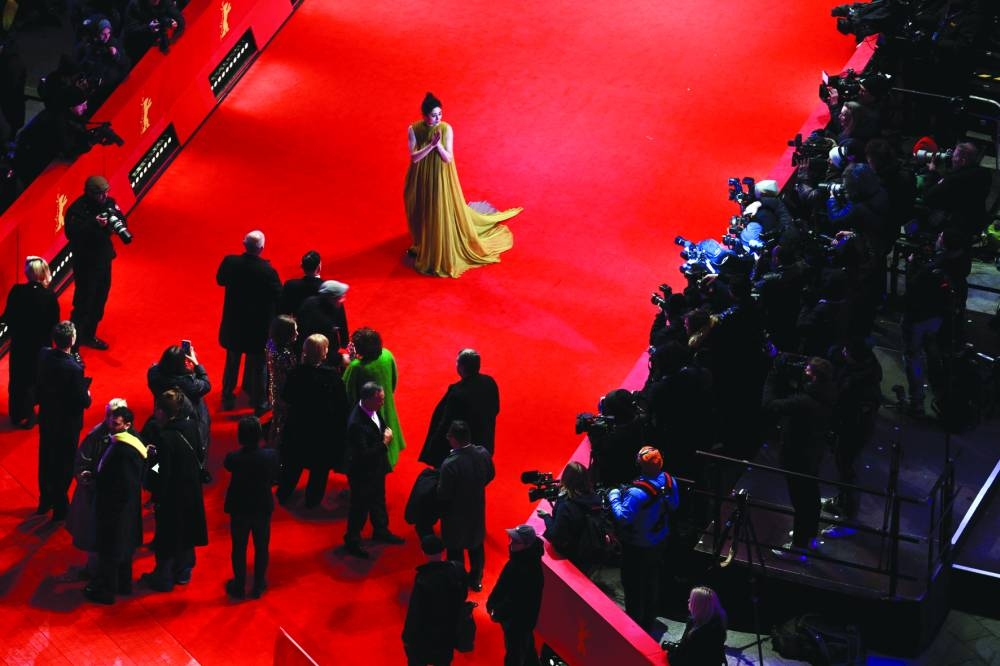The Berlin film festival awarded its top prizes yesterday, including the Golden Bear for best picture, after a star-studded run that highlighted freedom struggles in Iran and Ukraine.
After two years of a reduced format due to pandemic restrictions, the 11-day Berlinale was back in full swing this year, with A-listers such as Cate Blanchett, Helen Mirren and Steven Spielberg walking the red carpet.
“The Berlinale has come back with a vengeance, and added something that it wasn’t especially known for in its pre-pandemic days: star power,” said Variety magazine.
The Berlinale, alongside Cannes and Venice, is among Europe’s top cinema showcases. This year in its 73rd edition, the festival marked the first anniversary of Russia’s invasion of Ukraine with a focus on Ukrainian cinema.
The festival, which traditionally has the strongest political focus of the three big European cinema showcases, also highlighted anti-government protests in Iran with new feature films and documentaries.
There were 19 films from around the world vying for this year’s Golden Bear, which was awarded at a gala ceremony by a jury led by Hollywood star Kristen Stewart, at 32 the youngest president in the festival’s history.
On the Adamant, a documentary about a floating daycare centre in Paris for adults with mental adults with mental disorders, won the Berlin Film Festival’s top award.
“That documentary can be considered cinema in its own right touches me deeply,” said director Nicolas Philibert while accepting the award in Berlin, asking his audience to find a common humanity in all, even the apparently ill.
“As we all know, the craziest people are not those we think they are,” he said.
Several films from Asian directors were among the top contenders, including Past Lives, a continent-spanning love story by Korean-Canadian first-time filmmaker Celine Song.
Critics lavished praise on the film, already a breakout hit at last month’s US film festival Sundance.
The Hollywood Reporter called it a “remarkably assured debut”, while Deadline said Song had created “an elegant and unexpectedly mesmerising character piece that speaks profoundly to the concept of love in the modern age”.
Also in the running was Makoto Shinkai’s Suzume, the first Japanese anime to compete for the Golden Bear since Hayao Miyazaki’s Spirited Away won the prize in 2002.
It follows 17-year-old schoolgirl Suzume as she finds herself caught up in a mission to close a series of magical doors in a bid to prevent earthquakes.
“Although one might feel weary in advance to hear Suzume is yet another anime in which a young person is enlisted into a struggle to save their family/hometown/Japan/the world, this one’s a keeper,” The Hollywood Reporter said.
Chinese director Liu Jian also premiered an animated film at the festival, the semi-autobiographical Art College 1994.
Screen Daily said it “evokes a specific time and a place so vividly that you can almost taste the stale cigarette smoke”.
Critics were also impressed by 20,000 Species of Bees, the fictional feature debut from Spanish director Estibaliz Urresola Solaguren.
“Arthouse audiences worldwide should respond to the pathos, breadth and humanity of a film that takes a while to build but, when it does, never loses its grip,” said Screen Daily.
The film yesterday picked up two independent jury prizes ahead of the main awards, from the Guild of German Art House Cinemas and the Berliner Morgenpost newspaper.
Another Spanish-language family drama, Mexican director Lila Aviles’ Totem, also emerged as a highlight.
The Hollywood Reporter said it was as “noisy, joyous and as exhausting as the multi-generational bash at the heart of its story”.
Afire from German director Christian Petzold, about a group of friends whose holiday retreat to the Baltic coast goes horribly wrong, also won praise.
Variety called it “wincingly well-observed and acidly funny”, while The Hollywood Reporter said it was “a deceptively simple and straightforward but emotionally layered film”.
All the Colours of the World Are Between Black and White, a love story by Nigerian director Babatunde Apalowo, scooped the “Teddy Award” late Friday.
The movie, which screened in the festival’s Panorama sidebar section, stars Tope Tedela as a delivery driver in Lagos who gets swept up in a photography competition.
Last year, Spanish director Carla Simon won the Golden Bear for Alcarras, a Catalan drama about a family of peach farmers.

Actor Sofia Otero accepts Silver Bear for Best Leading Performance Award in '20,000 Species of Bees.

Lebanese musician, writer and filmmaker Michelle Keserwany (right) and Lebanese musician, writer and filmmaker Noel Keserwany pose with their medal for "Best Short Film" during the award ceremony of the 73rd Berlinale International Film Festival in Berlin. (AFP)

Jury member Golshifteh Farahani arrives to the awards ceremony at the 73rd Berlinale International Film Festival in Berlin, Germany, (Reuters)
